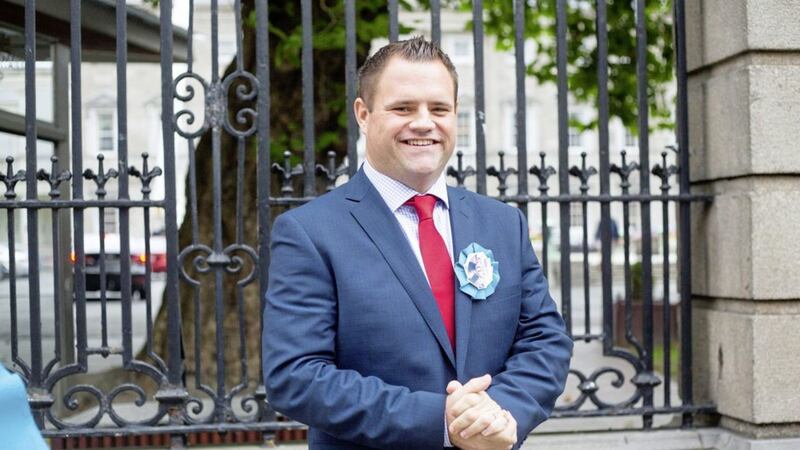On Monday evening Fine Gael TD Neale Richmond gave a talk to Sidney Sussex College, Cambridge entitled: ‘Towards a New Ireland’. A month ago Fianna Fáil TD Jim O’Callaghan presented a paper at the same college outlining his proposals for Irish unity. These are important developments in several respects.
O’Callaghan’s paper could be dismissed by cynics as about positioning himself for a leadership heave against the beleaguered Taoiseach Micheál Martin as he leads FF further down a slope in opinion polls. However, it’s much more than that. Since it’s the first time a leading figure in FF has set out in detail proposals for Irish unity and the mechanisms by which that could be achieved, it establishes a bench mark others inside the party and outside have to respond to. Do they agree with him or not? If not, what do they propose?
The same is true of Richmond’s proposals. No senior figure in FG has ever done what he attempted on Monday night.
Decades ago Garret FitzGerald proposed imaginative plans for dealing with the failed political unit we live in, but he never laid out a blueprint for a united Ireland. Richmond is a rising star in FG. As chair of the Seanad committee on Brexit he was a very effective spokesman for the Irish government on British TV and radio during all the negotiations from 2017.
Richmond’s plans are more radical than O’Callaghan’s. However, the first point is that both agree on several important details. The primary one is that there will be a border poll. Secondly, there is need to prepare for one by establishing agreed policy positions on matters such as health, education, welfare, pensions, taxation and a raft of other vital matters.
This may seem to be an example of the bleeding obvious, but in fact it’s a major step forward. Before these men presented their proposals the position of both FF and FG was (and still is) to be referendum deniers. All they would say is, altogether now, “now is not the time”. That’s a deliberately dishonest political dodge, but it’s worse than that because it comes from people who claim they support the Good Friday Agreement in all its parts, one of which requires concurrent referendums north and south for its full implementation.
It’s also an insult to people’s intelligence because any fule know you have to tell the electorate what they’re voting for. That’s why the Scottish government produced a book over 600 pages long describing in detail what an independent Scotland will look like. In this respect Richmond goes further than O’Callaghan in proposing a citizens assembly ‘to produce a vision for a united Ireland’ to the proconsul here for the time being, and the Irish minister for foreign affairs.
Richmond is also more specific than O’Callaghan who tended to concentrate of political structures and mechanisms. Richmond is keen on process. He suggests that after the next assembly election the proconsul should lay out the criteria to be used to decide if the obligation to call a referendum is to be fulfilled, something the British are dodging.
The final reason for the importance of these two presentations is that they are incontrovertible evidence that members of the two old parties that have dominated Irish politics for a century realise the status quo is going to change, even if the party leaders won’t admit it. It’s astonishing to think that until now no political party in the south has laid out its blueprint for achieving what the Supreme Court decades ago stated was a constitutional imperative.
Unwittingly the unionist marchers, road blockers and protesters are helping to speed the process. Devoid of political leadership, they roam the streets trailing tattered flags and symbols, beating drums, chanting, aimless, incoherent, violent, directionless, proving beyond peradventure to any onlooker that this place doesn’t work.
At long last Irish politicians are offering an alternative: progress.









